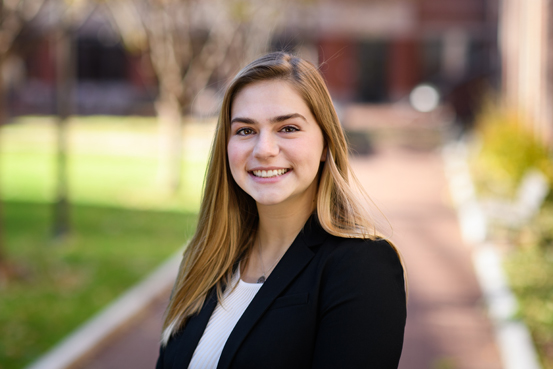Nebraska’s B2I Program: Extended Foster Care That Honors Youth Voice
This post is part of our “Doing Extended Care Right” blog series. Each blog highlights promising aspects of a state's extended foster care program. We hope this series will lead to conversations and reforms around extended foster care so that these systems provide youth what they need to make a successful transition to adulthood and be connected to their communities. To learn more about extended foster care laws and policies, visit our Extended Foster Care Review.
Successful extended care systems provide more than additional years of care after youth would otherwise age out. Extended foster care systems should provide youth with skills, resources, and relationships that serve as a foundation for a successful entrance into adulthood. To fulfill their mission of supporting youth, extended care systems must engage youth in a way that is respectful of their status as young adults, as well as their need for continued support. Extended care must be trauma informed and supported by developmental research.
An important component of an effective extended care system is ensuring that youth voice is valued in the creation and implementation of extended foster care policies and practices. Nebraska’s extended foster care program, called Bridge to Independence (B2I), is an example of a youth-centered, youth-directed program crafted to ensure young people develop the skills they need to be successful adults. For healthy brain development during the period of emerging adulthood, young people need opportunities to exercise self-reliance and make their own decisions. Emerging adults use their late teens and twenties to plot out their educational and vocational futures, evaluate their beliefs and decide on a value system, and establish a sense of personal identity. It is particularly critical that extended foster care programs listen to youth voice and help young people make informed choices about their lives.
“I never feel micromanaged. I’m involved in every decision that affects my life." - Nedhal, Youth Fellow
B2I allows young people to have autonomy, but also provides participants with a safety net, support, and guidance. The B2I program is structured around a voluntary services agreement between the young person and a B2I Independence Coordinator, a support person, not a case manager. The agreement outlines the young person's goals, the steps to achieve those goals, and services to support them along the way.
We spoke with Nedhal, who is entering her second year with the B2I program and a Youth Fellow at Nebraska Appleseed. When asked about whether or not she felt like she had autonomy in B2I, Nedhal stated that “I never feel micromanaged. I’m involved in every decision that affects my life.” Whether Nedhal was planning a trip out of state with friends or deciding how to best pursue her academic goals, her Independence Coordinator provided advice and support; however, Nedhal never needed to ask permission. The role of Nedhal's Independence Coordinator was to support her in decision-making, connect her to programs and classes, and to ensure a seamless transition between support systems. She helped her with things like getting health insurance, a car and auto insurance, and signing up for financial literacy classes. “I never used to be financially responsible,” Nedhal explained. “Now I make a budget every month and I know what is a priority and what’s not.”
B2I’s culture of respect for emerging adults permeates the program. Nedhal described her experience during the annual court review: “I’ve always liked the hearings because it makes me go back over my goals, remember them, and keep working toward them.” The hearings are informal and conversational with judges sit alongside youth. Reflecting on her hearings, Nedhal remarked: “I feel like I’m seen as an equal.”
B2I’s services and supports help young people develop the skills they need to take on adult responsibilities—as Nedhal said, “you have to work for it." The program seeks to develop a youth’s skills, but also has reciprocal responsibilities to youth. Nebraska’s Division of Children and Family Services must repeatedly provide young people in foster care with a written notice that describes the B2I program and how to apply in clear, developmentally-appropriate language; such outreach measures are a hallmark of programs that understand the youth perspective and honor youth voice. Nedhal emphasized the importance of these measures and suggested that states with extended care do more to inform young people of their rights, potential opportunities, and the benefits of extended care.
Youth input has been consistent from the development of the program to its ongoing implementation, signaling that youth input is foundational to the program. Project Everlast, a youth council of young people with experience in the child welfare system, was instrumental in designing the B2I program. More than 100 young people from across the state participated in focus groups, took surveys, and shared their experiences to impact the design of the program. They also spoke at hearings, press conferences, and at the floor debate of the bill that created extended foster care. Nehdal said, “B2I is a great program. It has covered all the necessities that a program should cover.” The law also ensured that youth would be part of ongoing monitoring of the implementation of the B2I program. The B2I Advisory Board, which must report annually to the legislature on the program and make recommendations on how it can be improved, must include at least three youth or young adults who are or were in foster care. This ensures youth will be part of assessing how effective the program is from a youth/young adult perspective and conversations about how it can be improved.
Nebraska has balanced supporting young people and letting them lead. Reflecting on B2I and her plans for the future, Nedhal said, “B2I has definitely helped me. I’m a little nervous about the future and turning 21, but I do feel well prepared.”
